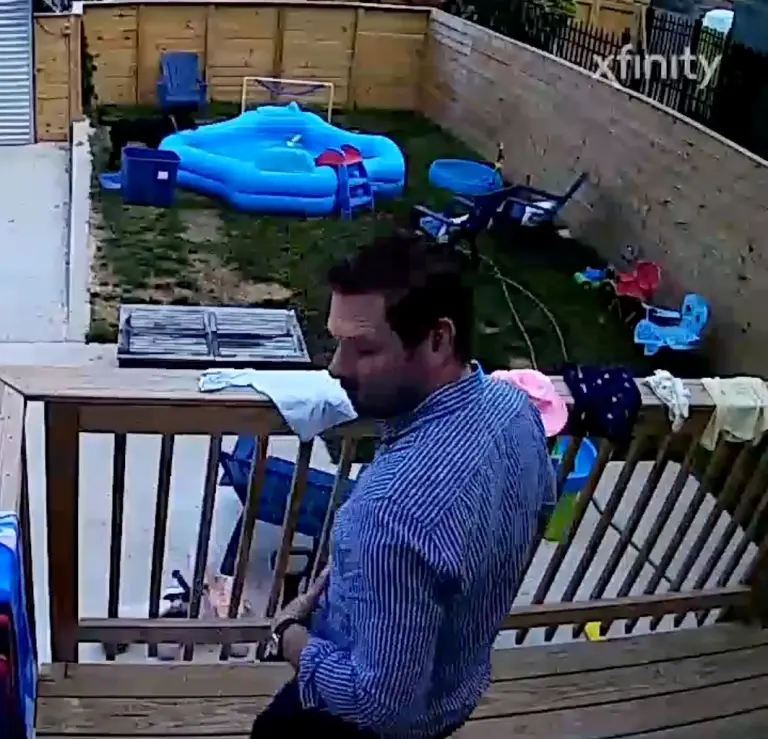Democrat Rep. Eric Swalwell Faces Federal Criminal Referral for Alleged Mortgage and Tax Fraud Tied to His $1.2 Million Washington DC Home
California Congressman Eric Swalwell has found himself at the center of a growing federal controversy, following a criminal referral to the Department of Justice that accuses him of mortgage and tax fraud connected to his $1.2 million Washington, D.C. home. The allegations, confirmed by multiple outlets including the New York Post and CBS News, suggest that the Democratic lawmaker may have misrepresented details related to the purchase and financing of the high-end residence — a claim he strongly denies.

The issue stems from a formal referral made by Federal Housing Finance Agency (FHFA) Director Bill Pulte, who asked the Justice Department to examine whether Swalwell violated federal law when he purchased his home near Capitol Hill. The 3,000-square-foot property, purchased in 2020, was reportedly classified as his “primary residence” — a designation that carries lower mortgage rates and potential tax advantages. The referral claims that the congressman’s financial disclosures and tax filings may have included inconsistencies surrounding that declaration.
According to The Post, the home in question sits in the Eckington neighborhood of Washington, D.C., and boasts modern renovations including a marble-lined chimney, hardwood flooring, and an open kitchen design. Records show the six-bedroom property was financed through a conventional loan reportedly backed by federally regulated housing agencies. Sources familiar with the investigation said that the referral includes “concerns about potential misrepresentation on loan documents, tax returns, or insurance filings.”

If the Justice Department takes up the case, investigators will likely review mortgage records, tax filings, and internal communications tied to the loan. Such investigations can take months, often requiring input from both the Internal Revenue Service and the Office of the Inspector General for the FHFA. However, officials cautioned that a referral does not equal formal charges — it simply means federal housing regulators believe the evidence merits review.
Swalwell has publicly condemned the referral as a politically motivated move, pointing directly to former President Donald Trump. “The only thing I’m surprised about is that it took him this long to come after me,” Swalwell said in a statement. “I will not stop speaking out, nor will I end my lawsuit against him for his role in January 6.”
The California lawmaker has been one of Trump’s fiercest critics in Congress, having served as an impeachment manager and continuing to pursue litigation against the former president over the Capitol riot. His allies claim the referral is part of a wider effort by Trump-aligned officials to discredit Democratic figures ahead of the 2026 midterm elections.

Still, the timing is notable. The referral was filed just weeks after reports surfaced of similar probes involving other high-profile Democrats, including New York Attorney General Letitia James and Rep. Adam Schiff. The pattern, some analysts argue, reflects a politically charged use of referrals to cast suspicion on outspoken Trump opponents. Yet, for federal investigators, intent and accuracy on mortgage documents remain key — and a paper trail, if clear, can either exonerate or implicate a borrower regardless of political context.
From a legal standpoint, mortgage fraud cases hinge on whether a borrower knowingly made false statements to a lender or government agency. That could include misrepresenting a home’s intended use, such as claiming a property as a “primary residence” when it is not. Under federal law, such actions can carry penalties including fines and imprisonment if proven intentional. However, experts note that these cases often hinge on nuance, especially for lawmakers who maintain multiple residences between their districts and Washington, D.C.

In Swalwell’s case, his official residence has long been listed in California’s 14th Congressional District. Yet, public records indicate that he purchased the D.C. home as his primary residence, potentially conflicting with California’s own property and tax laws. The referral reportedly asks the DOJ to review whether Swalwell improperly benefited from loan terms or exemptions that would not apply if the home were considered secondary.
The political fallout has been swift. Conservative commentators quickly seized on the referral as a sign of hypocrisy, citing Swalwell’s history of criticizing alleged misconduct by Republican figures. Liberal supporters, meanwhile, have dismissed it as a “weaponized” referral, pointing to Pulte’s ties to Trump-era regulatory policies. Regardless of motive, the referral has placed Swalwell under intense scrutiny at a critical moment in his career.
Swalwell’s legal team has emphasized that the congressman “acted fully in accordance with the law,” adding that his mortgage documents and tax filings “were properly reviewed and filed.” They argue that the allegations stem from “routine political retaliation” rather than legitimate wrongdoing. “This is a transparent attempt to silence one of Trump’s most vocal critics,” one adviser told The Hill.

The Department of Justice has not publicly commented on the referral, and it remains unclear whether prosecutors intend to open a formal investigation. A DOJ spokesperson told reporters that the agency “does not confirm or deny referrals or ongoing reviews.”
Swalwell’s colleagues on Capitol Hill have expressed mixed reactions. Some Democrats privately worry the controversy could distract from their legislative agenda, while Republicans are calling for transparency. “Every public official should be held to the same standard,” said Rep. James Comer (R-Ky.), who chairs the House Oversight Committee. “If there’s evidence of misrepresentation, the DOJ should investigate fully.”

Beyond the political noise, the situation raises broader questions about the financial oversight of public officials. Members of Congress are required to disclose income, assets, and liabilities each year, but enforcement of those rules is inconsistent. Mortgage declarations, in particular, often fall into gray areas because lawmakers frequently split their time between D.C. and their home districts. That ambiguity has historically made it difficult to determine what qualifies as a “primary residence.”
For Swalwell, the stakes are both personal and professional. A prolonged federal investigation could complicate his re-election campaign, invite further ethics scrutiny, and provide fodder for political opponents. Yet the congressman has shown no signs of backing down. “I’m not going to be intimidated by this,” he said. “The truth will come out.”
Even if no charges result, the optics alone could impact his credibility — especially for a lawmaker who built his reputation on issues of ethics and accountability. Political strategists note that perception often outweighs legal outcomes in Washington. “A referral, even without charges, creates a headline,” said one political analyst. “And headlines shape narratives.”
As of now, no formal investigation has been announced, but the DOJ has acknowledged receipt of the FHFA referral. Whether the matter evolves into a full-blown criminal probe remains to be seen. For Swalwell, it’s another battle in a long-running political war — one that now hits uncomfortably close to home.



